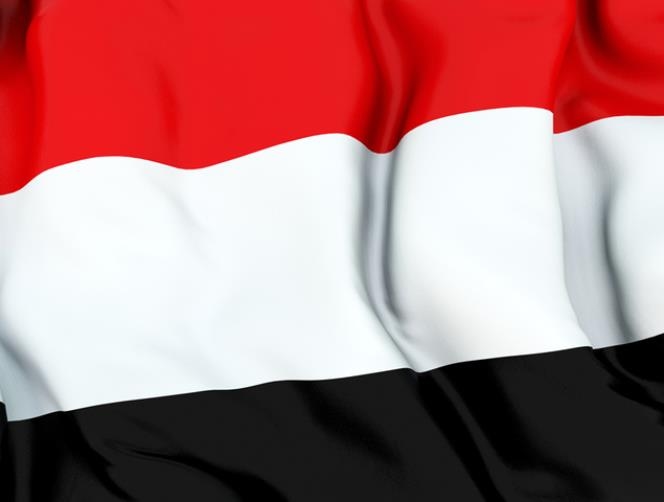Reuters
Iran has stepped up weapons transfers to the Houthis, the militia fighting the Saudi-backed government in Yemen, U.S., Western and Iranian officials tell Reuters, a development that threatens to prolong and intensify the 19-month-old war.
The increased pace of transfers in recent months, which officials said include missiles and small arms, could exacerbate
a security headache for the United States, which last week struck Houthi targets with cruise missiles in retaliation for failed missile attacks on a U.S. Navy destroyer.
Much of the recent smuggling activity has been through Oman, which neighbors Yemen, including via overland routes
that take advantage of porous borders between the two countries, the officials said.
That raises a further quandary for Washington, which views the tiny Gulf state as a strategic interlocutor and ally in the conflict-ridden region. A senior U.S. administration official said that Washington had informed Oman of its concerns, without specifying when.
"We have been concerned about the recent flow of weapons from Iran into Yemen and have conveyed those concerns to those who maintain relations with the Houthis, including the Omani government," the official told Reuters.
Oman denies any weapons smuggling across its border, and its officials could not be reached for comment. Yemeni and senior regional officials say the Omanis are not actively involved with the transfers, but rather turning a blind eye and failing to aggressively crack down on the flow.
In an interview with Saudi newspaper Okaz last week, Omani Foreign Minister Yousef bin Alwi said:
"There is no truth to this. No weapons have crossed our border and we are ready to clarify any suspicions if they arise."
The Iran-allied Houthis gained a trove of weapons when whole divisions allied to former Yemen President Ali Abdullah Saleh sided with them at the start of the war last year. But Saudi Arabia and Yemen’s exiled government say they also receive substantial amounts of weapons and ammunition from Iran. Tehran views the Houthis as the legitimate authority in Yemen, but denies it supplies them with weapons.
Some Western officials have been more skeptical of the view that the Houthis are receiving large-scale support from Iran.
The U.S. and Western officials who spoke to Reuters about the recent trend in arms transfers said it was based on intelligence they had seen but did not elaborate on its nature. They said the frequency of transfers on known overland smuggling routes had increased notably, though the scale of the shipments was unclear.
Even U.S. officials warning of Iran's support for the Houthis acknowledge intelligence gaps in Yemen, where the U.S. posture has been sharply reduced since the start of the conflict. The sources all declined to be identified because of the sensitivity of the issue.
"We are aware of a recent increased frequency of weapons shipments supplied by Iran, which are reaching the Houthis via the Omani border," a Western diplomat familiar with the conflict told Reuters.
Three U.S. officials confirmed that assertion.
One of those officials, who is familiar with Yemen, said that in the past few months there had been a noticeable increase in weapons-smuggling activity.
"What they're bringing in via Oman are anti-ship missiles, explosives..., money and personnel," the official said.
Another regional security source said the transfers included surface-to-surface short-range missiles and small arms.
A senior Iranian diplomat confirmed there had been a "sharp surge in Iran's help to the Houthis in Yemen" since May, referring to weapons, training and money.
"The nuclear deal gave Iran an upper hand in its rivalry with Saudi Arabia, but it needs to be preserved," the diplomat said.
Washington's Gulf allies have warned that U.S. President Barack Obama's rapprochement with Tehran through the landmark nuclear deal signed last year will only embolden Iran in conflicts in Syria, Lebanon, Yemen and elsewhere.
U.S. LOOKING INTO MISSILE ORIGIN
The increase in transfers comes as the civil war drags on and threatens to pull the United States deeper into a conflict that has killed 10,000 people and which pits two regional powers, Saudi Arabia and Iran, against each other. A U.N.-brokered 72-hour ceasefire went into effect on Wednesday.
Since the beginning of the war, the Houthis have used short-range Scud missiles, and the United Nations says they have also used surface-to-air missiles, improvised to operate as surface-to-surface rockets against Saudi Arabia.
But a suspected Houthi missile attack against a United Arab Emirates vessel in a strategic Red Sea shipping lane this month, as well as the attempted strikes against the U.S. warship, raise worries about the rebels' capability to launch bolder attacks.
The Houthis have denied attacking the USS Mason.
Two officials said the United States was looking into whether components of the missiles, including the warhead, might have benefited from Iranian parts or come from Iran but acknowledged the assessment was so far inconclusive.
General Joseph Votel, the commander of the U.S. military's Central Command, said he suspected an Iranian role in arming the Houthis and noted that Iran was one of the possible suppliers of the kinds of shore-based missile technology seen in Yemen.
"I do think Iran is playing a role in some of this. They do have a relationship with the Houthis," he told a forum in Washington.
A senior Western diplomat told Reuters that Iran's role in helping the Houthis had increased substantially since March 2015, when the Saudis intervened to restore President Abd Rabbu Mansour Hadi to office.
The diplomat said there was concern Oman had not tackled Iranian smuggling as strongly as it should have done.
"In my mind, the level of Iranian arms smuggling probably doesn’t get the attention it deserves.”
Washington has generally shied away from being too publicly critical of Muscat, especially as it played a historic role in brokering the nuclear deal.
A senior Yemeni official told Reuters there had been an increase in smuggled weapons reaching the Houthis via Oman but could not say definitively whether the weapons were Iranian.
Yemen's army chief of staff, Mohammed al-Maqdishi, said in a recent interview on state television that Oman should be “a lot stricter” on smuggling. “We are now in the process of heavily guarding the border points more and more."
A senior Yemeni military source told Reuters that one of the smuggling routes is through Shehen, a sort of no-man’s land and entry point in Mahra province along the 288-km (179-mile) long Yemeni-Omani border. Although formally under government control, the region is a well known haven for smuggling and central authority is weak.
In addition to smuggling via secondary ports along Yemen’s coastline, the source said the frequency had also increased “because Iran feels the Houthis are in a difficult situation and want to show them they’re with them till the end.”









